On the morning of October 13, I was woken up at 5:00 a.m. by a phone call from an Israeli number. I ignored it and used the little time I had to rest.
I was recovering after one of the most terrifying nights we have experienced in Gaza in the past week. It’s hard to sleep in a house full of terrified children. They scream with every bomb that drops around us. It makes it difficult to follow what is going on. I want to know where the bomb hit and who was killed in it, but I find myself busy trying to calm the situation inside the home where my family recently found shelter.
Israel says this war is against Hamas fighters, but I have only seen civilians like us suffering.
Minutes later, the number called me again. This time, I answered the phone and heard the Israeli army:
“You have to evacuate your home. Go to the South. Otherwise, you are responsible for your life.” The speaker identified himself as being with the “Israeli Defense Forces.”
At such an early hour, everyone was still sleeping. I did not want to wake them to tell them the news. I looked out the window and thought if I saw people evacuating in the street, I would do something. But it was calm, except for the Israeli bombing.
I decided to go back to sleep. It had been a long day, and another longer one was waiting.
Later that morning, as with every day, the alarm that woke us was a massive missile that struck a target near our location. But the events that would follow were even more terrifying than the bombs.
By Friday afternoon, I saw people in al-Shuja’iyya, a neighborhood east of Gaza City, starting to get ready. They were loading their cars with their belongings, strapping furniture on top. I saw other people just walking, carrying bags filled with belongings on their backs, holding their children in their arms. I understood that the evacuation was underway and that these residents were leaving their homes.
To be honest, I didn’t take the Israeli army calls seriously. I thought it was only psychological warfare. But unfortunately, it was real. The people’s voices inside neighboring homes started getting louder, and the growing chaos became another source of terror.
Most everyone who received the messages to evacuate to the south of Gaza wanted to leave and go there at once. However, finding a car to get from Gaza City to the southern areas of Gaza, such as Khan Younis, Rafah, and Deir Al-Balah, was difficult. The shortest way is about 17 miles, but people could not find any cars to take them. Only those who owned cars were able to drive; other people traveled on foot, and it took over five hours to make the trip. Those who walked slept in the streets of Khan Younis at the end of their journey.
Luckily, we had time to collect our stuff. I did not have to evacuate my home because I had already evacuated in the first days of the war. But this second evacuation seemed to me that it would be our last. Luckily, we had cars to move.
We stuffed our temporary foam mattresses, cooking gas canisters, what remained of our food, and all the water we still had into the car, and we headed to Khan Younis — my father-in-law, who had been hosting us, has another home there.
As we headed south, there was massive traffic, a line over 10 miles long full of cars, buses, and wagons full of women and children all heading south. We could barely move as the traffic was stuck. A trip that usually takes 17 minutes from Gaza to Khan Younis took us three and a half hours.
What I saw on my way can only be described as a new Nakba.
I have written many stories about the 1948 Nakba and have interviewed people who left their homes and lands. I have listened to their stories and have seen the tears they shed about what they experienced. This time, I witnessed all these scenes. What I saw on my way can only be described as a new Nakba.
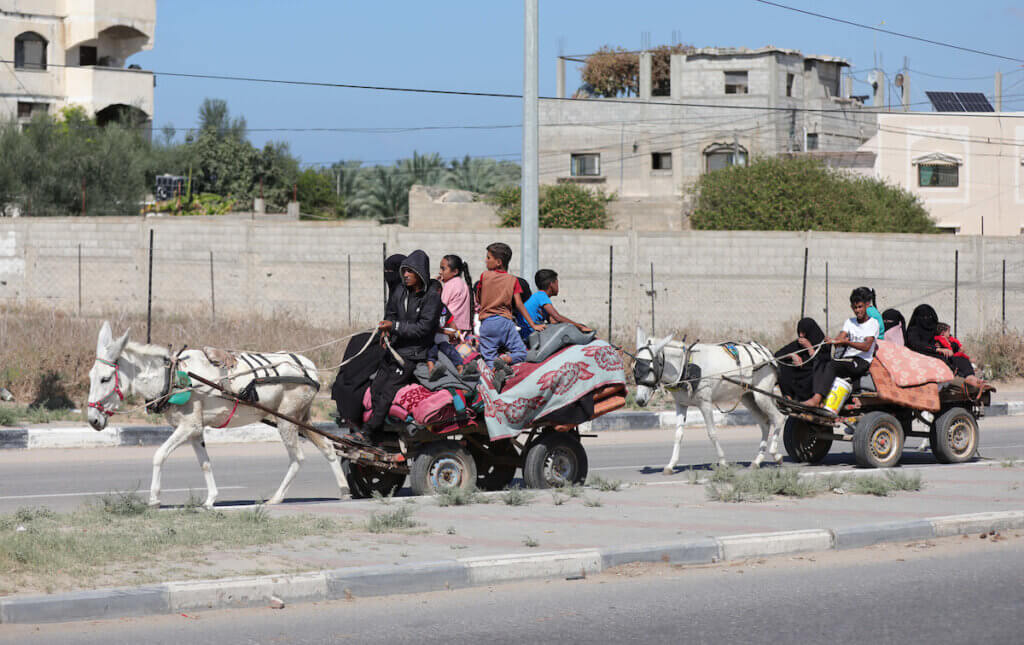
Huge trucks loaded with women holding their children in their arms. Young people were holding their elderly parents. Women running barefoot on the side of the road with their crying children on their shoulders. Small cars stuffed with over ten people inside, all sitting on top of each other. And in all of these scenes, there was panic clearly appearing on everyone’s faces.
The Israeli army told us that it would be safe for civilians to move from northern Gaza and Gaza City to the south from 3:00 to 8:00 p.m., and people panicked and moved. But they tricked us and bombed us on our way south. They bombed a huge truck loaded with families, and we were forced to cross over dead bodies and torn-apart children along our way.
Every scene I saw reminded me of the stories I have been told about the Nakba. People had told me all the same stories I experienced on my trip today. They, too, crossed over dead bodies to survive in 1948, and they also thought that they would go back to their homes. But they are still refugees today.
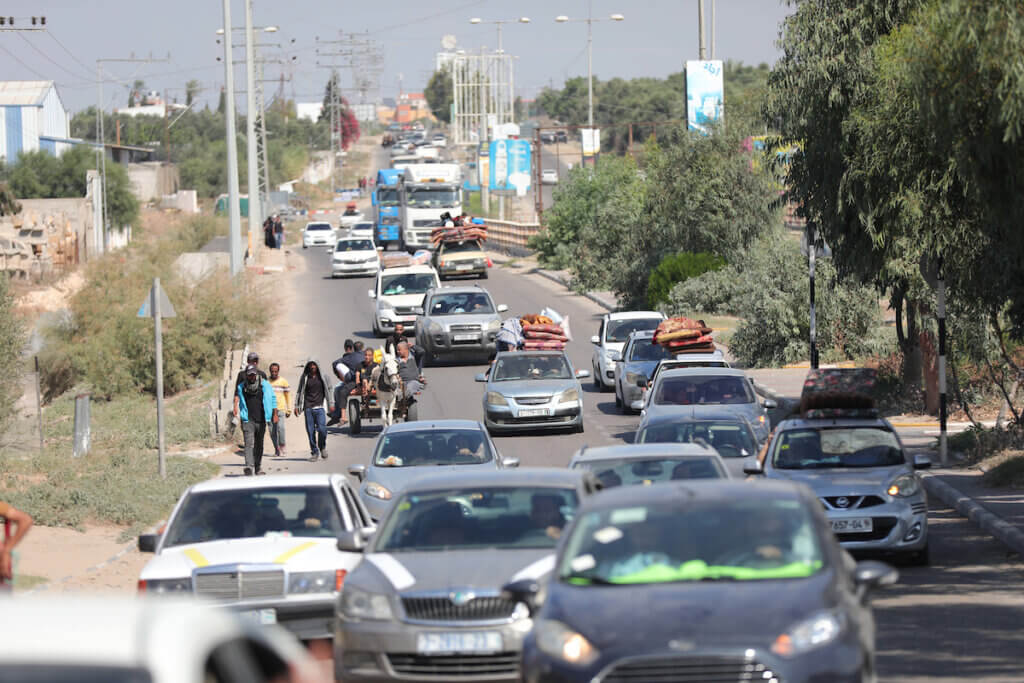
When we finally arrived in Khan Younis, we were surprised by the crowds with nowhere to go but to sit on the ground in public. We were also surprised by the crowds at the bakeries, where it took over two hours to get bread. There were also crowds at the supermarkets as people wanted to store food for the long war — they knew it was far from over.
As I’m writing these lines, I’m settled in Khan Younis. I am expecting that we will soon be ordered to leave Khan Younis and head to Rafah. And then, we will be forced to evacuate to Egypt. Very soon, I will start speaking about my Nakba, and I will remember that I spent my entire life trying to establish a home in Gaza and start a family, and when I finally did, I left it under the force of Israeli fire, again and again, and again and again …
Tareq S. Hajjaj
Tareq S. Hajjaj is the Mondoweiss Gaza Correspondent, and a member of the Palestinian Writers Union. Follow him on Twitter at @Tareqshajjaj.
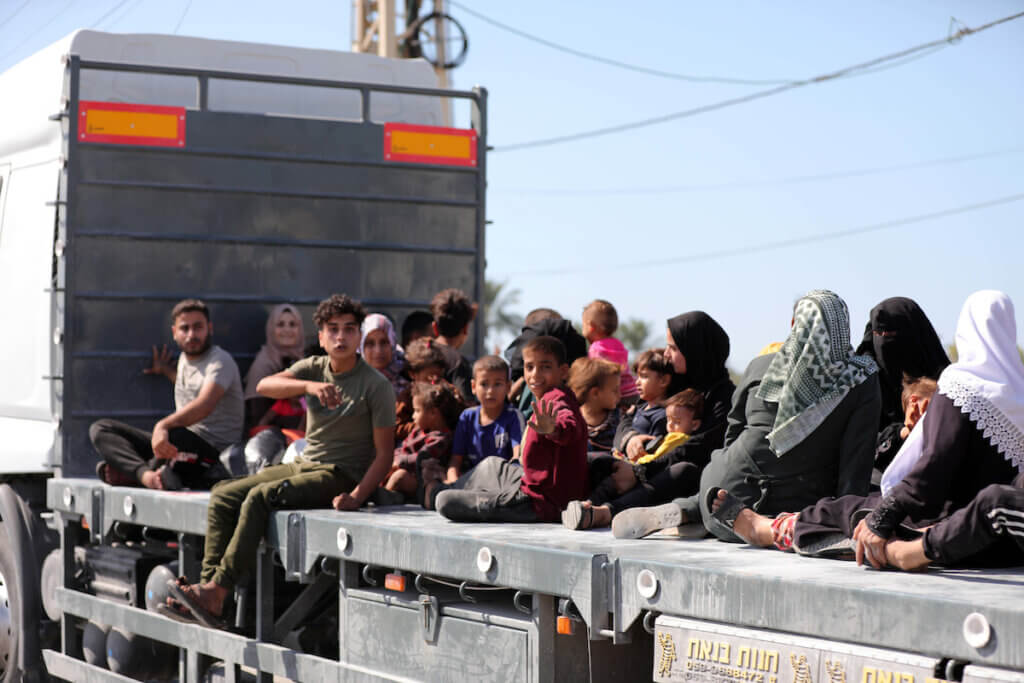

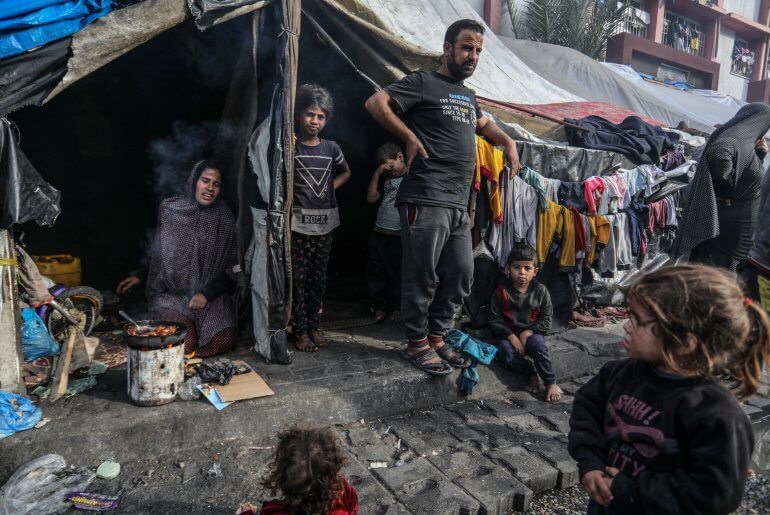
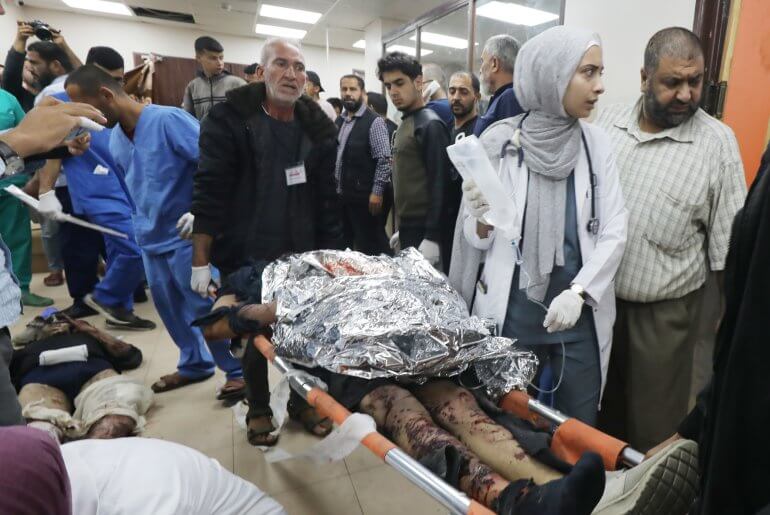
Truly moving account.
Dear Tareq ever since Israel’s revenge attacks started I have felt the deepest sadness and shame that I am part of such an inhumane and wicked world. I know we have stood by and let multiple atrocities happen in our world but the horror is we’ve learnt nothing, we are still allowing atrocities to happen, in fact we are perpetuating them. I am so very, very, sorry . Please forgive us.
The struggle for freedom goes on and on and on and on and on
nobody is immune.
the revolution goes on and on and on and on
all continents all countries all religions all political parties
All are in the same community
Viva Zapata! (1952) – ‘Gathering Forces’ scene [1080p] – YouTube